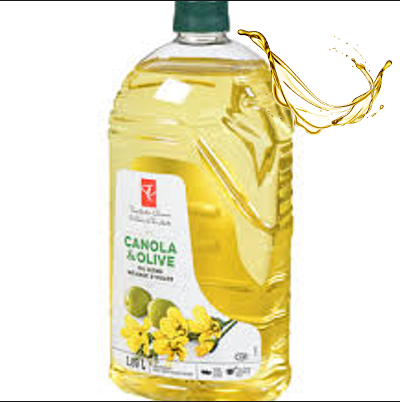The Pros and Cons of Using Refined Canola Oil in Your Cooking

Canola Cooking Oil Deutsch: A Healthy and Versatile Choice
May 3, 2023
The Benefits of Cooking with Canola Oil
May 3, 2023The Pros and Cons of Using Refined Canola Oil in Your Cooking
Refined canola oil is a commonly used cooking oil that has gained popularity in recent years due to its low saturated fat content and high smoke point. However, like any other ingredient, it has its pros and cons. In this article, we will discuss the benefits and potential drawbacks of using refined canola oil in your cooking.

What is Refined Canola Oil?
Canola oil is extracted from the seeds of the canola plant, which belongs to the Brassica family. It is a versatile and healthy cooking oil that contains high levels of monounsaturated and polyunsaturated fats. Refined canola oil is made by removing impurities and refining the oil to improve its taste, color, and stability.
Pros of Using Refined Canola Oil in Your Cooking
Low Saturated Fat Content
One of the primary advantages of using refined canola oil in your cooking is its low saturated fat content. Saturated fats are often associated with an increased risk of heart disease and other health problems, making canola oil a healthier option.
High Smoke Point
Refined canola oil has a high smoke point, making it an excellent choice for high-temperature cooking methods like frying, grilling, and sautéing. This means that the oil can be heated to a higher temperature before it starts to smoke, making it less likely to produce harmful compounds.
Mild Flavor
Refined canola oil has a mild flavor, making it an ideal option for cooking dishes that require a neutral taste. It does not have a strong flavor that can overpower the other ingredients, allowing the flavors of the food to shine.
Cons of Using Refined Canola Oil in Your Cooking
Processing Methods May Remove Nutrients
Refining canola oil can result in the loss of some nutrients. For instance, the refining process can remove the oil’s vitamin E content, an important antioxidant that protects the body from free radicals.
Risk of Trans Fats
Refined canola oil may contain trace amounts of trans fats, which are unsaturated fats that have been chemically altered to make them more stable. Trans fats are linked to an increased risk of heart disease and other health issues, making it essential to check the nutrition label and choose brands with low or no trans fat content.
Possible GMO Contamination
Canola oil is often made from genetically modified canola

